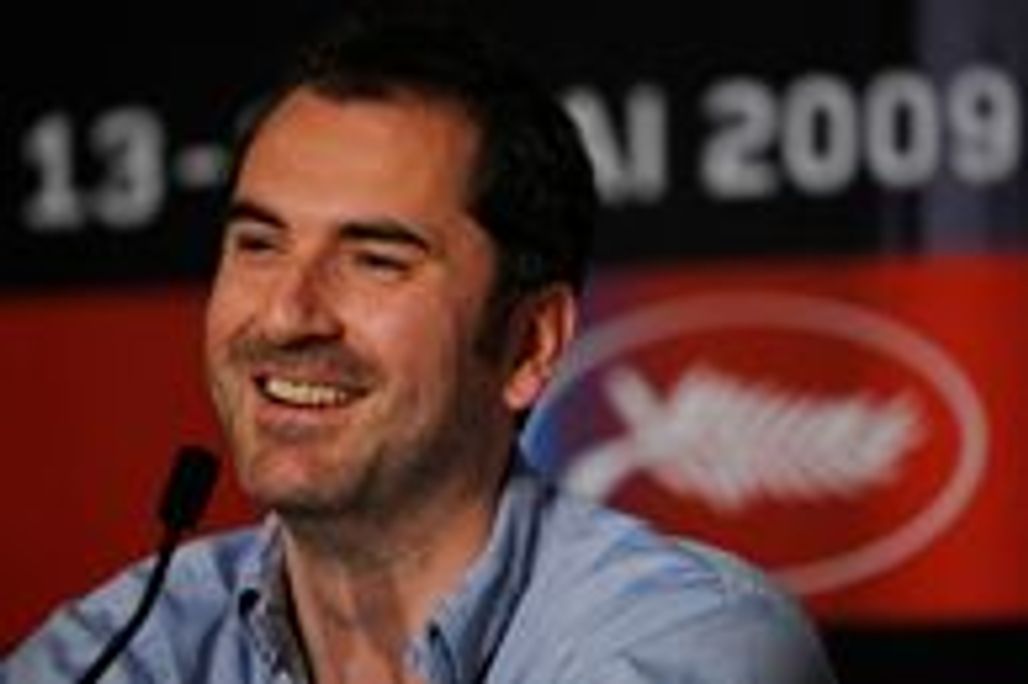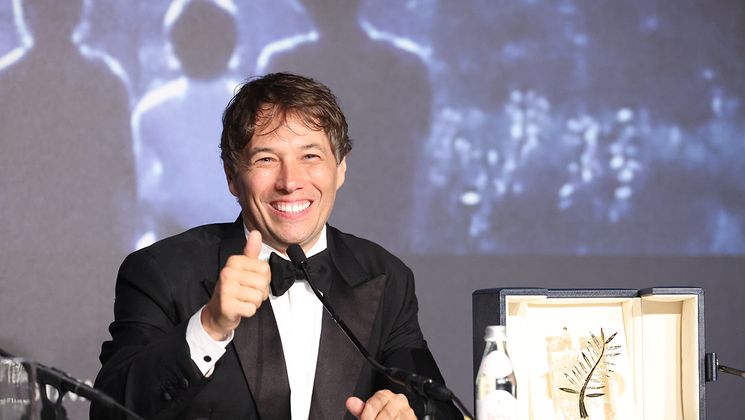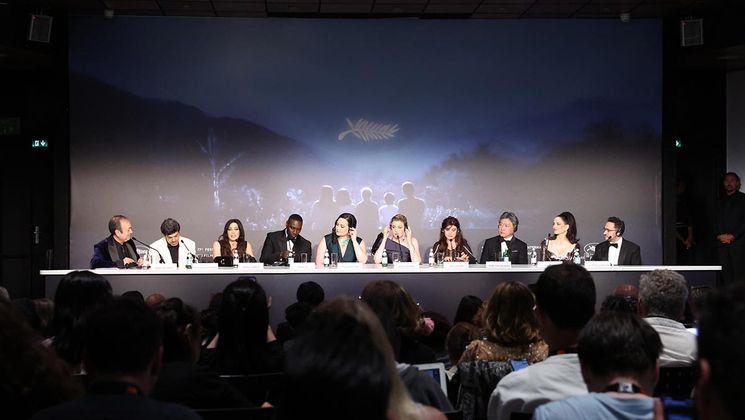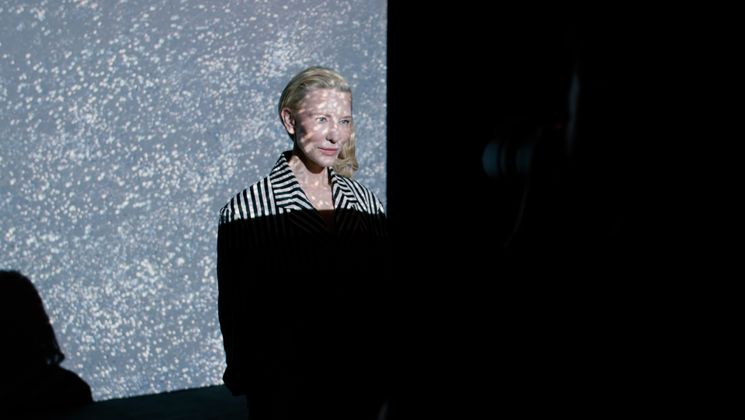
Press Conference: “In the Beginning”

Flanked by actors François Cluzet, Soko, Emmanuelle Devos and Vincent Rottiers, cinematographer Glynn Speeckaert, and producers Pierre-Ange Le Pogam and Edouard Weil, French director Xavier Giannoli took questions from the international press about his new feature In the Beginning, screening in Competition. Selected excerpts:
Xavier Giannoli on the length of the film:
“It all started when I read a two-or-three-line report in the newspaper about this incident, and then a few other things people had written about the subject. We looked into it – I met with the judge appointed to the case, who introduced me to the defendant. And then we went on with our investigation, and I put together a whole lot of material that was interesting both from the human point of view and the technical one. I wanted to go beyond this simple anecdote. I wanted to create a genuine fiction. So, with all that I had accumulated, I wrote without thinking of the possible duration of the film. On the other hand, I was thinking about the human necessity, what needed to be told so that this could come alive and be a strong story. I wanted it to create a dizzying impression. After a while, I realized that the film would indeed be long, because the screenplay was long. What happens then, of course, is that you raise the economic question, the commercial question. Do we take the risk of making a 150-minute film? And it is a risk, it’s an enormous risk. It’s a huge challenge to a filmmaker. It means the film will have to be very good. Watching the film has to be such an intense experience that you forget how long it is. Making a long film today, with the economic pressure surrounding us, is an act of liberty.”
François Cluzet on preparing for his part:
“A lot of work with the director. When I read the script, I immediately had the impression, which was confirmed by what followed, that we were dealing with an excessively powerful script. Obviously, that meant high-quality acting, and therefore a lot of work. First of all, I started to think about this man’s idleness. I thought to myself, what’s worse than being idle, having nothing to do, when one is released from prison? What kind of dangers await you? … After that, I simply listened to the director, who knew much more than I did about the character. I was also lucky enough to be working with partners who helped me find the right tone. That’s the way I like to work on a role, by trying it out with a partner. It gives me the impression that my whole character is real, especially in the scenes with Emmanuelle. I appreciated all the actors I worked with on this film, but as an actor, I really fell in love with Emmanuelle, because I had the feeling that when our characters meet, in that precious moment, she immediately enables me to believe in how to escape from the hell I’ve created. As if the idle ex-con finally got some self-respect and became lovable, when Emmanuelle offered herself to him. I got the idea it was the crux of the story, almost.”
Xavier Giannoli on how true-to-facts the film is:
“I don’t believe that any film is really true to the facts. When I look at the destiny of a man like this one, the question that comes to my mind is: Is there an original, interesting human truth in the life of this man? Is there something that hasn’t been shown, that hasn’t been seen, that will be an adventure for the audience? Once you distill the human truth I’m talking about, the facts aren’t a problem anymore. It goes beyond a framework as simple as that. When you make a film about a story like this, you hope that there will be a dynamic that carries the story far from the mere facts.”
Xavier Giannoli on the importance of being in Cannes :
“Cannes is the most wonderful screen in the world. It’s the world’s biggest arts festival, and it is incredibly popular and valuable. What’s more, we’re in France, the center of the arts and the world. It’s a joy, an honor, a responsibility. How lucky we are! I admire many of the directors who are in Competition with us. The prizes depend the Jury’s subjectivity – there’s something magical about that, but it’s also unfair. Of course, that’s the thing that makes the Festival extraordinary, and one must simply humbly accept the Jury’s decisions.”
Emmanuelle Devos on the contrasts between Resnais and Giannoli:
“It’s difficult to speak of their differences. I’d rather talk about what they have in common. Both are intelligent and passionate directors, and each in his own way loves cinema above all.”


